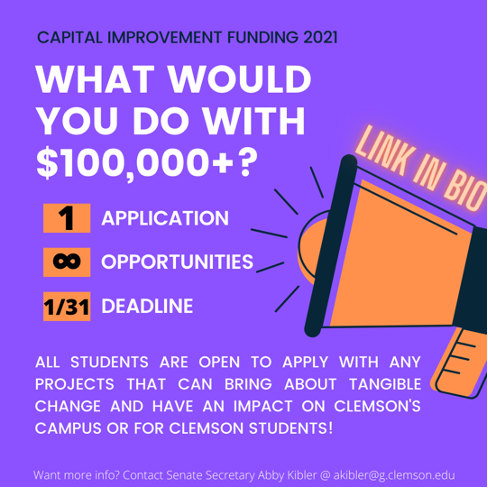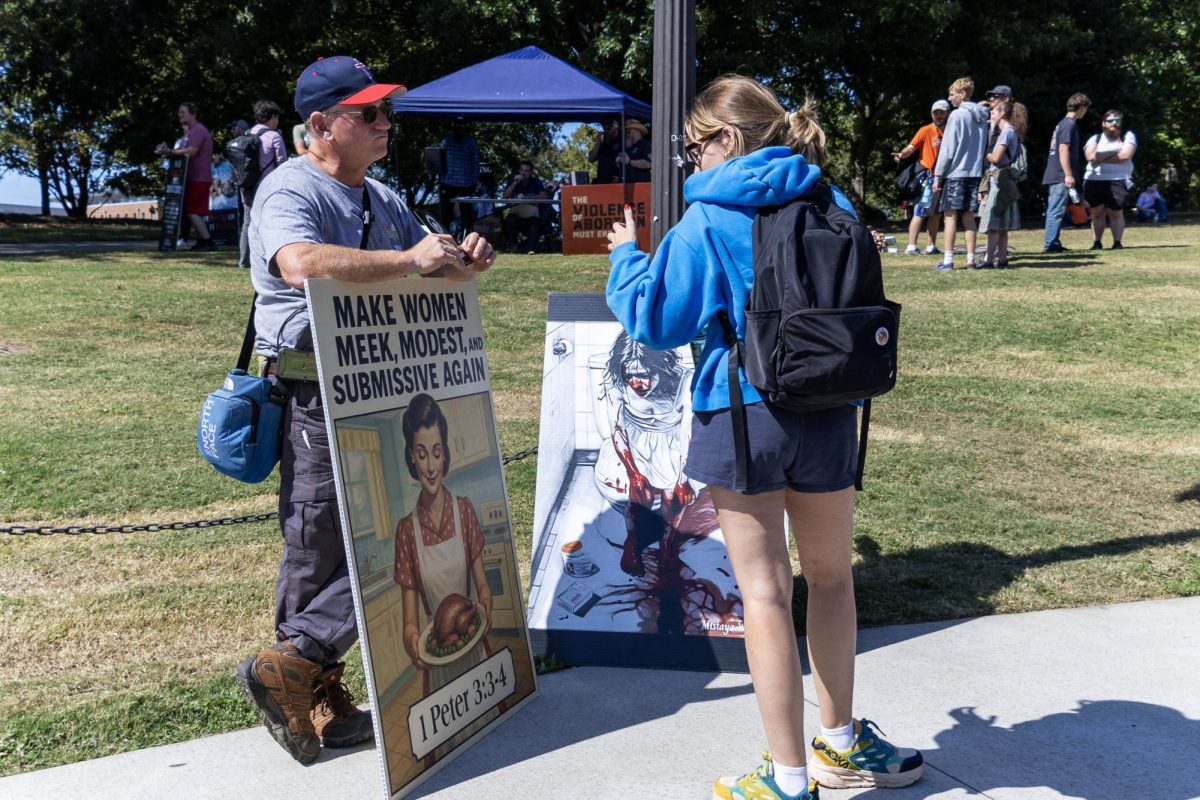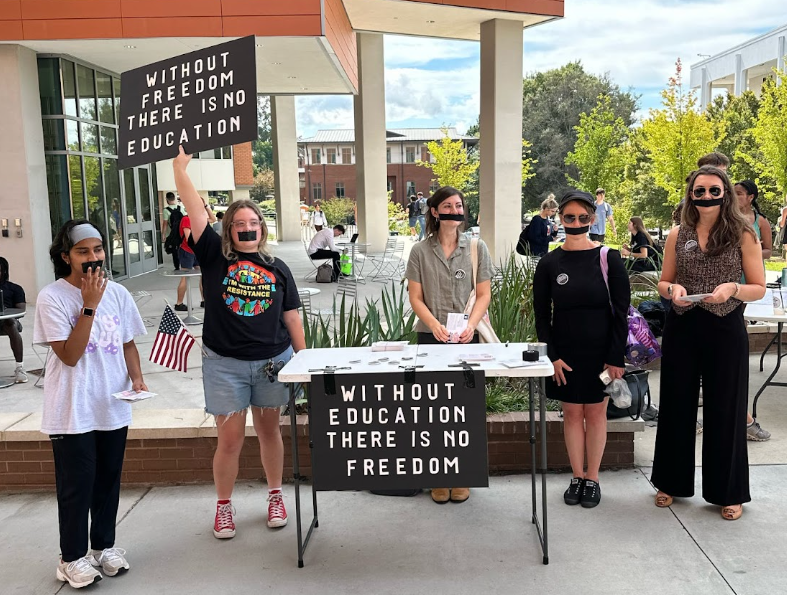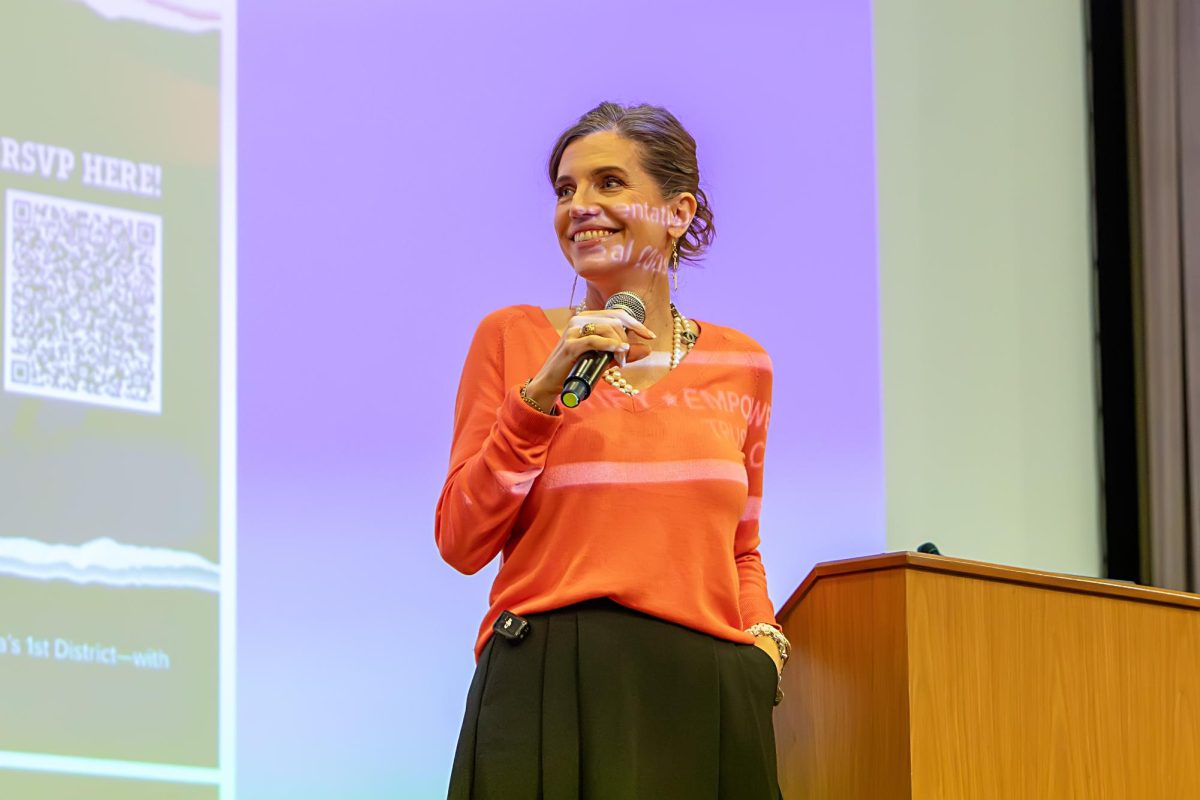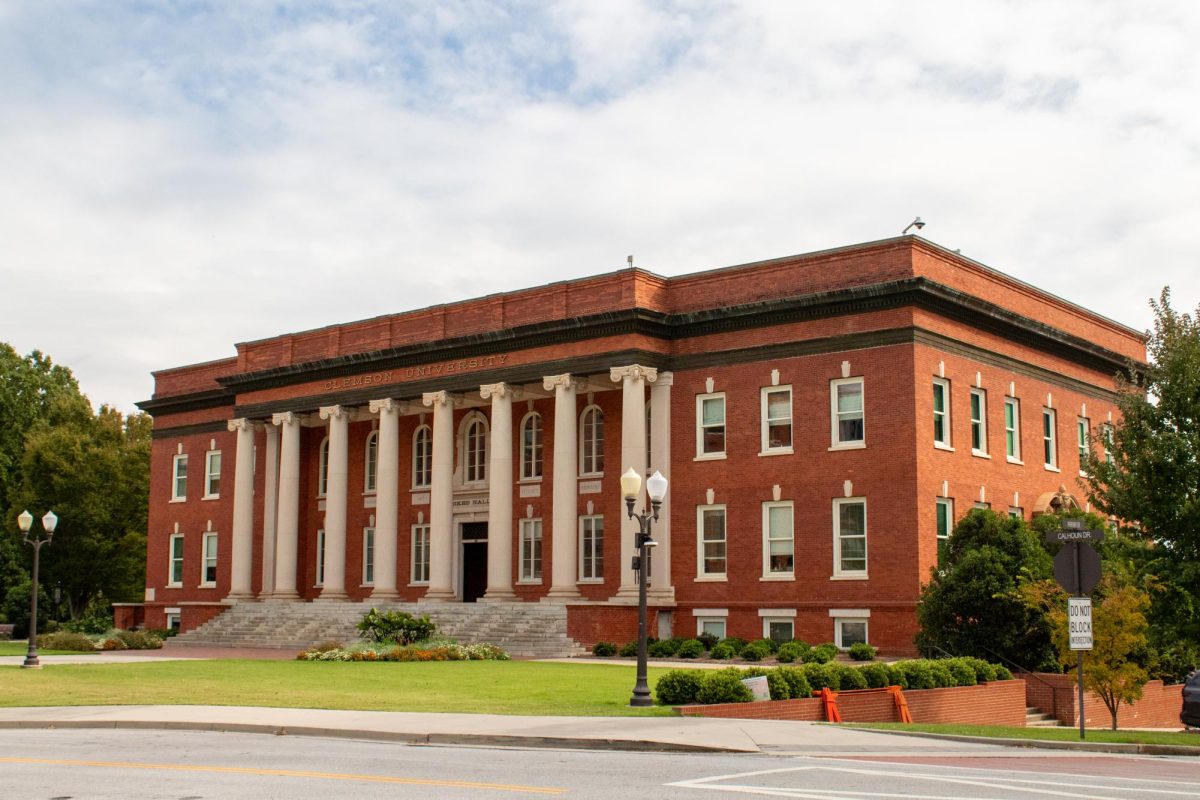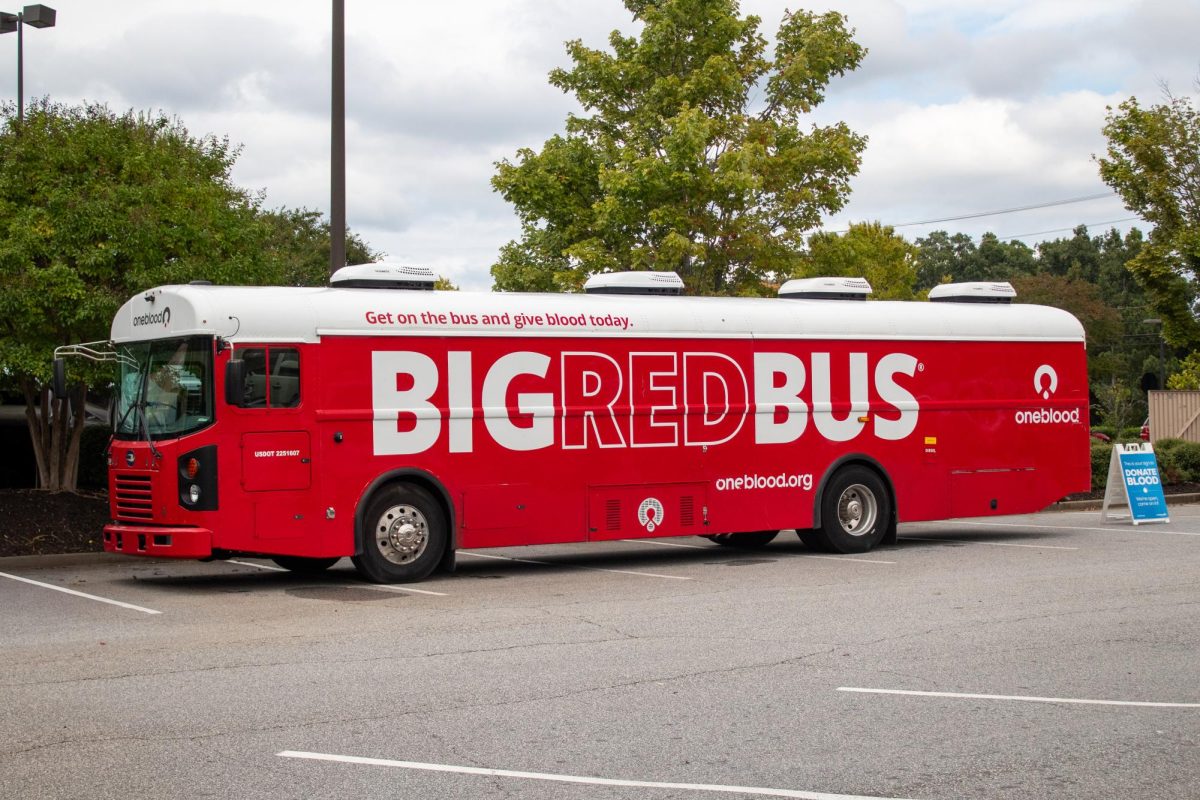When people walk around Clemson’s campus, there are several landmarks that might stick out to them. Perhaps it is the iconic tiger statues outside of Memorial Stadium, the cannon statue on Bowman Field, or the landscaping and beautification of Gantt Circle. All of these, and more, were made possible in part by the student Capital Improvement program.
Annually, the Clemson Undergraduate Student Government (CUSG) senate allocates funds to student-led initiatives to support on-campus projects in a process called Capital Improvement. Despite all of the irregularities and challenges due to COVID-19, this year’s allocation process is no different. For decades, Capital Improvement has been one of the many duties of the CUSG senate each term and is described in the senate’s bylaws as “annual funding provided to student-led projects that can bring about tangible change to Clemson University.” Each year, the Student Activity Funding Board constitution allocates at least $50,000 of student activity fee dollars to these projects. Approved projects receive a funding allocation in mid-February and funds are available for use up to a maximum of two fiscal years. At the end of the second fiscal year, all remaining unused funds return to the general Capital Improvement account for redistribution to new projects. This year, the CUSG Senate has a total of $146,522 to allocate to student-led projects that meet the Capital Improvement funding criteria.
The purpose and facilitation of Capital Improvement have shifted often over the years. Chief Business Officer for the Division of Student Affairs Lisa Bona began working with the CUSG Senate and Capital Improvement in 2006.
“The scope of projects CUSG senate supported and approved back in the earlier years of the program is very different from the projects funded in recent years,” said Bona. “The original purpose behind Capital Improvement was for CUSG senate to allocate funds to student-championed, larger-scale capital improvements across campus. Regardless of the size, the intent has always been to use the funds for projects that improve the value and quality of the Clemson experience.”
The senate may choose to fund multiple, smaller-scale projects or fewer, more costly projects, and the senate currently welcomes proposals from any member of the Clemson family, including undergraduate and graduate students as well as faculty and staff. Interested students must arrange a partnership with a full-time employee to provide oversight to the project and to work with the Student Affairs Business Office on the use of funding should the project receive final approval.
“I want to emphasize that Capital Improvement can fund a wide, diverse range of projects,” said Emma Walker, CUSG senate secretary for the 2019-20 year who oversaw the Capital Improvement process.
Capital Improvement varies in what type of projects are funded. In the past few years, projects such as the Clemson Makerspace and Library collaboration, the Ag Quad renovation project, the Period Pilot Program and the Bike Share program have all been allocated money via Capital Improvement funds.
“We’ve had some issues in the past with a lack of applications for Capital Improvement funding. This year, given the current situation with COVID-19 and more remote learning, will be no different. Further, a lot of students aren’t aware that this funding is available,” said Walker, when talking about the struggles Capital Improvement has faced in the past. “I was thankful, however, to have various administrators, such as Ms. Bona and student senators, assist me in the process last year as it can be quite overwhelming at times.”
Even with all the difficulties of this year, the senate is prepared to allocate funds to projects come Monday, Feb. 15, 2021. The senate session where senators discuss Capital Improvement is always a long night, with the 2020 session lasting until around 1:30 a.m.
“Capital Improvement nights are some of our longer senate sessions, but senators recognize their important role in making these student-led projects come to life. By spending one long night to debate and allocate funds, we are creating tangible and sustainable change for generations of Clemson Tigers,” said Aparna Mahendranath, the former chair of the senate’s Academics Affairs committee and the current secretary of communications for CUSG.
Tate Fowler, the chair of the senate Campus Life committee, agreed that Capital Improvement made the session worthwhile.
“Although Capital Improvement is known to be a longer Senate meeting, any way in which we, as students, can make Clemson better is worth any long night full of debate,” Fowler said.
“Capital Improvement is kinda like a Clemson ‘Shark Tank’ where you get to see if your project and vision are something that people want to invest in for a better Clemson experience,” said Mahendranath. “It is not as complicated as it sounds, and as student leaders, this is one of the primary ways we can invest in student needs”
For more information about Capital Improvement and the application process, visit the CUSG website or CUSG’s social media. Author of this article, Abby Kibler, is senate secretary for CUSG and a copy editor for The Tiger.



